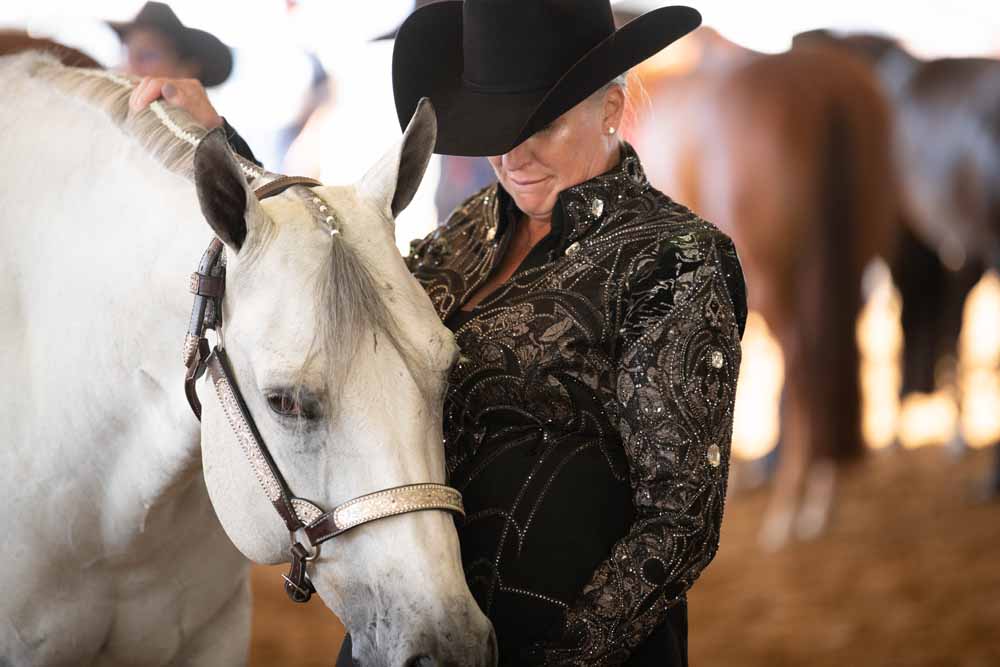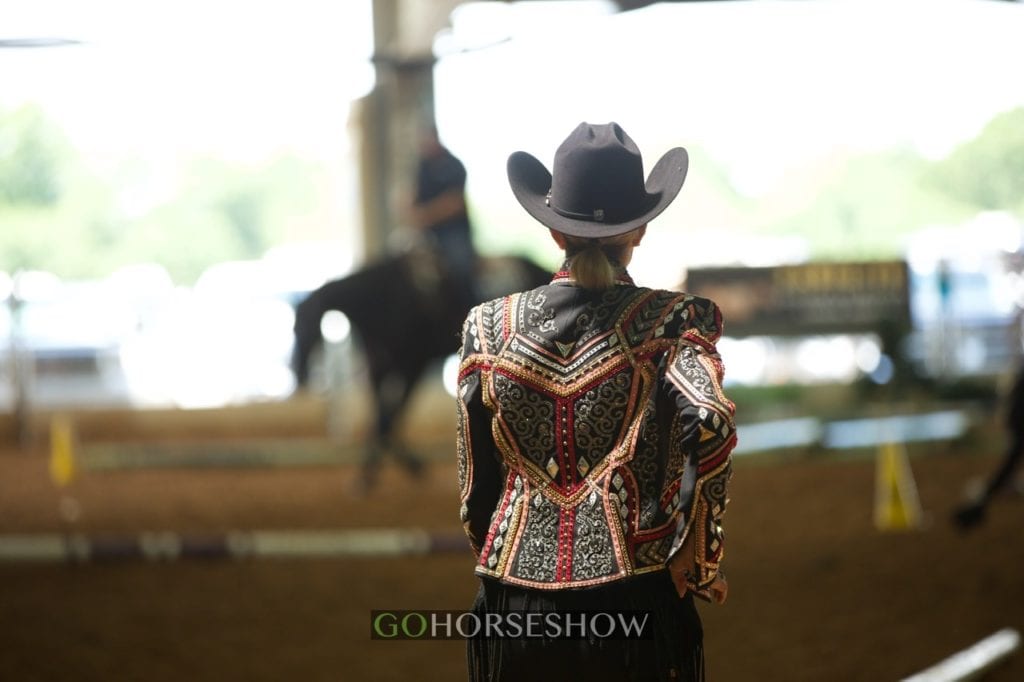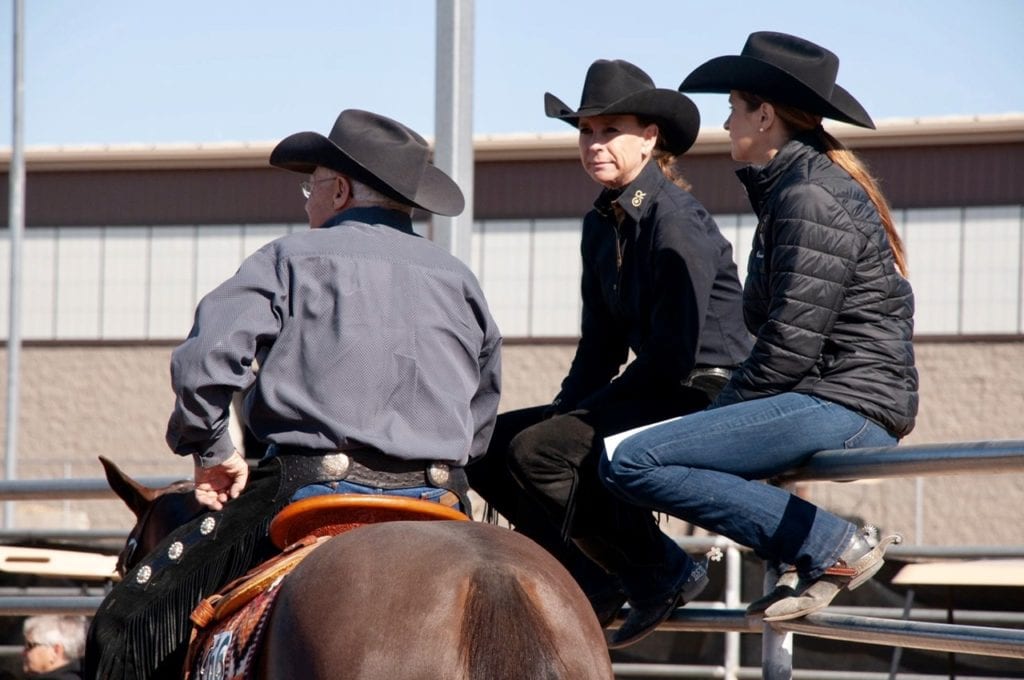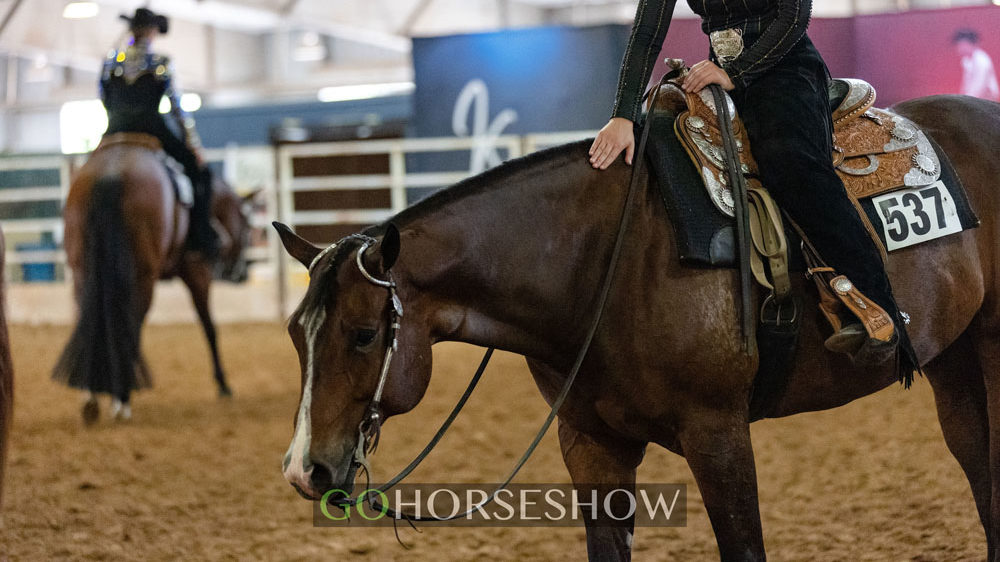We’ve all been there. You have a beautiful ride, all is going well, and suddenly your horse spooks or bucks or gets naughty and ruins the class. Or maybe you’re going through a period of tough lessons and difficult growth with your mount and are struggling to avoid getting frustrated by the process.
 Horses are the source of much joy in our lives, but can also be the source of real frustration at times. All horsemen agree that taking out our frustrations on our animals is wrong. However, in actual practice, how do we de-escalate a frustrating situation to avoid committing this cardinal sin?
Horses are the source of much joy in our lives, but can also be the source of real frustration at times. All horsemen agree that taking out our frustrations on our animals is wrong. However, in actual practice, how do we de-escalate a frustrating situation to avoid committing this cardinal sin?
We researched and compiled tips for de-escalating our frustrations to ensure we resolve issues instead of amplifying them.
Give Yourself a Time Out
It’s hard to make intelligent choices when you’re in the emotional throes of frustration or anger. So, rather than trying to talk yourself down from a cliff, it’s best to avoid climbing it in the first place.
The American Psychological Association says that one way to attempt to get a grip on your frustrations is to “try to identify warning signs that you’re starting to get upset. Then, step away from the situation when you recognize the signs to prevent your irritation from escalating.”
 Health Day states, “If you feel you can’t contain your anger, walk away from the situation. This is the most important and effective method for preventing an outburst. Go somewhere safe where you can be alone and do something to calm down, such as taking a walk.”
Health Day states, “If you feel you can’t contain your anger, walk away from the situation. This is the most important and effective method for preventing an outburst. Go somewhere safe where you can be alone and do something to calm down, such as taking a walk.”
While you may not be able to walk away from the middle of a bad ride, you can take a minute to step out when it is over to give yourself some clarity before addressing it with your trainer or taking it out on your horse unfairly.
Giving yourself a timeout is not the equivalent of running away from a problem, as long as you commit to addressing the issue once you’ve calmed down.
Don’t Allow Yourself to Dwell on it
 Some people tend to keep rehashing the incident that made them mad, adding fuel to the fire.
Some people tend to keep rehashing the incident that made them mad, adding fuel to the fire.
Researchers at Yale University have studied the adverse effects of “rumination,” defined as “The process of dwelling on past events that can’t be changed.” According to their studies, rumination is a cause of depression and anxiety, and it “prevents people from acknowledging and dealing with their emotions, as they try to understand the situation, instead of the feelings that the situation has caused.”
 Dwelling on frustration is an unproductive strategy, especially if you have already resolved the issue that angered you in the first place. Instead, the American Psychological Association recommends “try to let go of the past incident. One way to do that is to focus instead on things you appreciate about the [animal] or the situation that made you angry.”
Dwelling on frustration is an unproductive strategy, especially if you have already resolved the issue that angered you in the first place. Instead, the American Psychological Association recommends “try to let go of the past incident. One way to do that is to focus instead on things you appreciate about the [animal] or the situation that made you angry.”
Letting go of past anger is essential when dealing with horses because they are reactionary animals. If you dwell on a past situation that made you upset with them, they have no way of connecting your past anger with what is happening in the present. While you may feel the effect of accumulating anger, this is not a concept your horse will understand. Therefore, reactions to such feelings will likely be grossly disproportionate to the horse’s actual behavior.
Change Your Self-Talk
 When you’re angry, it’s easy to feel like things are worse than they are. To deal with this, the American Psychological Association recommends a coping technique called “cognitive restructuring,” in which you can replace unhelpful negative thoughts with more reasonable ones.
When you’re angry, it’s easy to feel like things are worse than they are. To deal with this, the American Psychological Association recommends a coping technique called “cognitive restructuring,” in which you can replace unhelpful negative thoughts with more reasonable ones.
For example, instead of thinking, “Everything is ruined,” tell yourself, “This is frustrating, but it’s not the end of the world.” Avoid “never” or “always” when talking about yourself or your horse. Statements like, “We will never get this concept,” or “My horse will always spook at that,” make you feel your anger is justified. Statements like these alienate trainers and friends who might otherwise be willing to work with you on a solution.
 Even when it’s justified, anger can quickly become irrational. Remind yourself that you are frustrated, and that’s ok, but don’t allow these frustrations to become a more significant habit of negative self-talk.
Even when it’s justified, anger can quickly become irrational. Remind yourself that you are frustrated, and that’s ok, but don’t allow these frustrations to become a more significant habit of negative self-talk.
Elizabeth Scott, Ph.D., states, “Those who frequently engage in negative self-talk tend to be more stressed. This is largely because their reality is altered to create an experience where they can’t reach the goals they’ve set for themselves.”
Therefore, remind yourself that your horse is an animal, and there is no consistently upward trajectory to success. There will be setbacks, but you will improve if you are willing to learn from them.
Breathe
 Simple relaxation strategies, such as deep breathing, can help soothe angry feelings and physically reduce stress hormones in your brain.
Simple relaxation strategies, such as deep breathing, can help soothe angry feelings and physically reduce stress hormones in your brain.
The United States Military teaches soldiers “tactical breathing” techniques to manage stress, anger, and shock. Research suggests that tactical breathing overrides that stress response by activating the parasympathetic nervous system, which slows down your heart rate and calms you down so you can make a rational decision.
It works like this: (1) Breathe in for four seconds, (2) hold your breath for four seconds, and (3) exhale for four seconds. You are advised to repeat this process as often as necessary until your heart rate slows and your mind calms.
So, if you sense your horse is about to react in a way that will upset you, begin your breathing exercises. Also, if it’s too late and the damage is already done, don’t forget to breathe, as it will help you better process your emotions so you can de-escalate the situation.
Talk About the Issue Constructively
 While there is value in venting about your frustrations, venting can lead to dwelling on the problem, which, as discussed above, will worsen things.
While there is value in venting about your frustrations, venting can lead to dwelling on the problem, which, as discussed above, will worsen things.
However, according to the American Psychological Association, “addressing the source of your frustrations is critical to resolving the underlying problem and growing from the process.”
Therefore, one technique for dealing with frustrations with your horse is to speak with your trainer about the issue after you’ve had time to calm down and process it. If you notice your horse isn’t responding to specific cues, discuss that with your trainer and practice dealing with it. If you see your horse is spooky about specific triggers, work with your trainer to get your horse through those problems.
 If you are willing to be taught, there is always something to be learned from negative experiences.
If you are willing to be taught, there is always something to be learned from negative experiences.
***
Again, horses are the source of deep joy in our lives, but the riding will become very “un-fun” very quickly if you spend your days frustrated with your mount. So, in those times, take a step back, focus on the positive, don’t succumb to negative self-talk, breathe, and communicate with your trainer.
Horses aren’t wired to understand the reasons for your pent-up anger, but they will often learn to work through issues with you if you don’t let your anger get the best of you.









